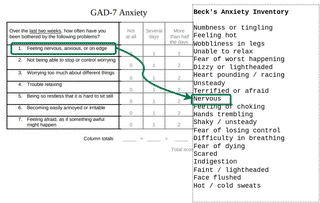As mental health professionals and researchers, finding a useful and efficient footing for questionnaire harmonisation is crucial for accurate, comparative analysis. Harmony, the innovative, AI-powered software, is here to help in navigating this often complex process.

One common comparative analysis that psychologists encounter is comparing data collected with the CES-D vs data collected with the Beck Anxiety Inventory matchup. The CES-D (Center for Epidemiological Studies-Depression) questionnaire measures symptoms linked to depression, whereas the Beck Anxiety Inventory (BAI) zeroes in on anxiety’s cognitive and somatic signals. While both instruments address the similar theme of emotional distress, their unique parameters make it challenging to compare without meticulous harmonisation.
This is where Harmony comes in to simplify the CES-D vs Beck Anxiety Inventory conundrum. Harmony uses natural language processing and generative AI models to systematically compare the CES-D vs Beck Anxiety Inventory (and other pairs of similar questionnaires).
Harmony gives you a percentage match between the items on both questionnaires which streamlines the research process.
Harmony lets you upload your instruments in a simple drag-and-drop manner. The quick and painless process is accessible right at https://harmonydata.ac.uk/app.
Beck, A. T., Epstein, N., Brown, G., & Steer, R. (1988). Beck Anxiety Inventory [Database record]. APA PsycTests. https://doi.org/10.1037/t02025-000
Radloff, L. S. (1977). The CES-D Scale: A self-report depression scale for research in the general population. Applied Psychological Measurement, 1(3), 385–401. https://doi.org/10.1177/014662167700100306